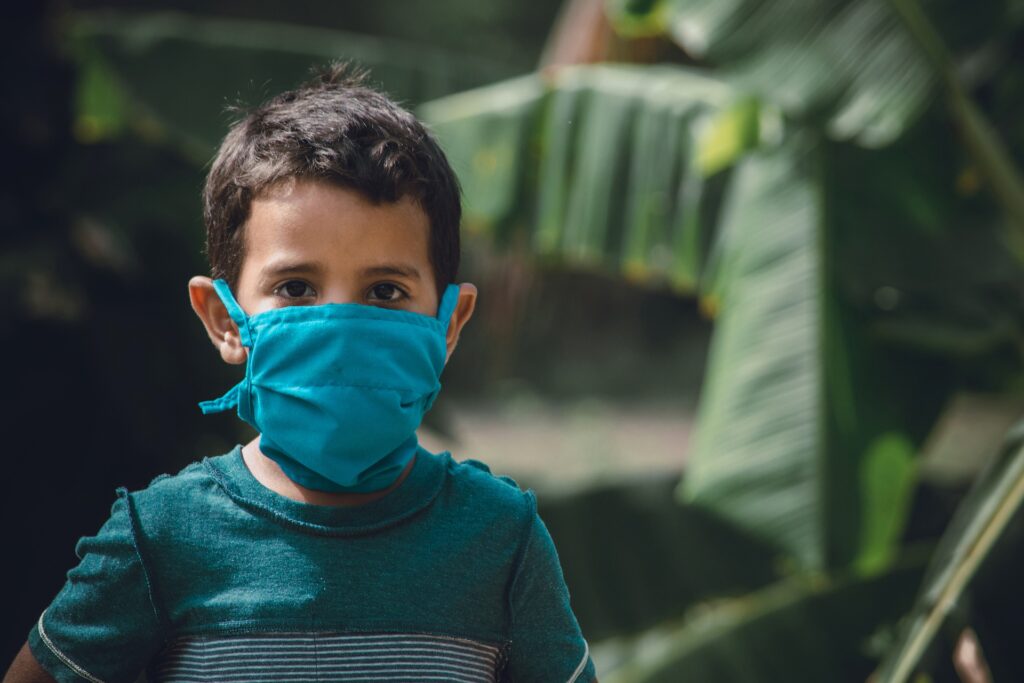Since the beginning of the pandemic, understanding how Covid-19 affects children has been a priority issue. We know that this virus can have a severe impact on children, but that children tend to have a milder infection and there are very few severe cases and deaths from Covid-19 among children and adolescents.
So far, data suggest that children under the age of 18 years represent about 8.5% of reported cases, with relatively few deaths compared to other age groups and usually mild disease. As with adults, pre-existing medical conditions have been suggested as a risk factor for severe disease and intensive care admission in children.
According to statistics from the Centers for Disease Control and Prevention (CDC), “Under-18s have accounted for just two per cent of hospitalized Covid-19 cases and less than 0.1 per cent of all deaths in the United States.”
A total of 45 children died from the coronavirus in the United States between 1 February and 1 August — compared to 105 who died from seasonal flu — out of a total of 13,000 children who died of all of the causes over the period.
An informative study of 2,143 confirmed or suspected cases of coronavirus among children in China found 94 per cent of cases were asymptomatic, mild or moderate.
Those children who do fall ill often have underlying conditions. A study found all 10 pediatric patients who were hospitalized in Chicago in March and April with Covid-19 had either pre-existing conditions or co-infections.
The bottom line here is that children get sick and die from Covid-19 far less often than adults do, though that does not mean they are immune.
The first study comparing the immune responses of adults and children with Covid-19 has detected key differences that may contribute to understanding why children usually have milder disease than adults. The study was published in Science Translational Medicine and was conducted by scientists at Albert Einstein College of Medicine, Children’s Hospital at Montefiore (CHAM), and Yale University.
The study involved 60 adult Covid-19 patients and 65 pediatric COVID-19 patients (less than 24 years old) hospitalized at CHAM and Montefiore Health System between March 13 and May 17, 2020; 20 of the pediatric patients had the novel multi-system inflammatory syndrome (MIS-C). The patients’ blood was tested for the presence of several types of immune cells, antibody responses, and the inflammatory proteins, known as cytokines, that immune cells produce.
Children with Covid-19 fared significantly better than adults. Twenty-two adults (37%) required mechanical ventilation compared with only five (8%) of pediatric patients. In addition, 17 adults (28%) died in the hospital compared with two (3%) of the pediatric patients. No deaths occurred among pediatric patients with MIS-C.
“Our findings suggest that children with Covid-19 do better than adults because their stronger innate immunity protects them against SARS-CoV-2, the novel coronavirus that causes the disease,” said co-senior author Betsy Herold, M.D., chief of infectious diseases.
People have two types of immunity—innate and adaptive. Innate immunity, in which immune cells respond rapidly to invading pathogens of all kinds, is more robust during childhood. Adaptive immunity, the second type of immune response, is more specific and features antibodies and immune cells that target specific viruses or other microbes.
This suggests that young people’s more robust innate response protects them from developing acute respiratory distress syndrome (ARDS)—the hallmark of severe and often fatal Covid-19 cases.
The findings have important implications for Covid-19 therapies and vaccines. “Our adult Covid-19 patients who fared poorly had high levels of neutralizing antibodies, suggesting that convalescent plasma—which is rich in neutralizing antibodies—may not help adults who have already developed signs of ARDS,” said Dr. B. Herold. “By contrast, therapies that boost innate immune responses early in the course of the disease may be especially beneficial.”
As for vaccines, Dr. B. Herold notes that most vaccine candidates for protecting against SARS-CoV-2 infection are aimed at boosting neutralizing-antibody levels. “We may want to consider assessing vaccines that promote immunity in other ways, such as by bolstering the innate immune response,” she said.

